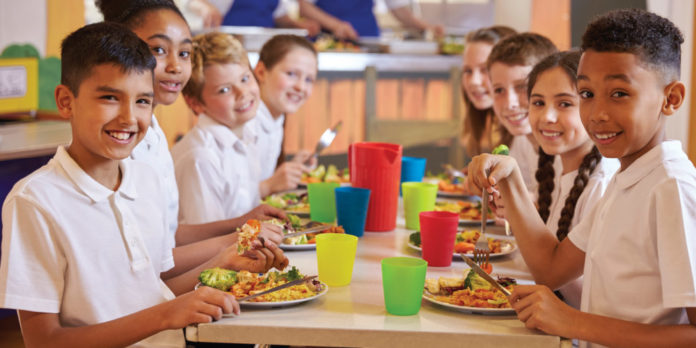David Burrows on what might be next for the universal infant free school meals policy.
Prime minister (PM) Theresa May has shelved plans to scrap universal infant free school meals (UIFSM), a key pledge in her party’s 2017 manifesto. David Visick, communications director at the Federation of Wholesale Distributors (FWD), said the news was “good for distributors, but it’s better for schools and kids.”
UIFSM is a policy that children, teachers and the food industry have grown to love since the coalition government introduced it in 2014. FWD members have delivered an extra 6.6m items to schools each year since – a rise of 17% in sales to schools. Members have invested in 250 extra staff and expanded their fleet capacities to meet the extra demand, too. In schools, meanwhile, £150m has been spent on upgrading kitchens, with new catering facilities rolled out at breakneck speed in 2,700 schools so they could offer the lunches. With the jobs of 17,000 school chefs also at risk, the Conservative Party’s plan to replace the lunches with free breakfasts to save money has been widely derided as short-sighted folly.
“Many contractors would pull out if UIFSM were pulled,” said Andy Kemp, group sales director at foodservice wholesaler Bidfood. “Industry has invested in this, [so a U-turn] could bankrupt people.”
He added: “Everyone recognises the opportunity of a ‘sale’, [but UIFSM] has raised awareness of the great food in schools today. Kids are eating the food and they’re loving it.”
Indeed, there is children’s health and attainment levels to think about, too. “Theresa May should take inspiration from Jamie Oliver, not Oliver Twist,” said Nick Clegg, the ex-deputy PM and Lib Dem leader who pushed the policy through. “It’s particularly short-sighted when we’re struggling with rising levels of childhood obesity,” he added.
School meal providers have to meet nutritional standards in line with regulations introduced in 2015. By comparison, just 1% of packed lunches meet the nutritional guidelines set for school food.
“Eating a proper cooked meal at lunch has been shown to have a positive impact on a child’s overall diet, not just at school,” said John Vincent and Henry Dimbleby, co-founders of fast food chain Leon, and the duo who triggered UIFSM via their 2013 government-commissioned school food review. Axe it and “the number of kids eating packed lunches is sure to rise”, they added.
That’s no longer a worry: the pledge to scrap UIFSM didn’t appear in the Queen’s Speech, which means it’s unlikely to be in the legislative programme for the next two years. But what happens come 2019?
The Conservative line seems to be that giving out free lunches for every child isn’t a sensible use of public money. The Lib Dems and the Labour Party want the meals extended to all primary school pupils, though. Longer, larger cost-benefit analyses will be needed before the Tories will be convinced that this is a good idea – previous research in limited free school meal pilots by the Institute of Fiscal Studies found no impact on body mass index, and only slight gains in attainment.
But with a weak hold on power, the government will certainly think twice before even whispering the idea of binning UIFSM again: “The support for keeping it from across the spectrum will have taken May’s team by surprise,” said the FWD’s Visick.








